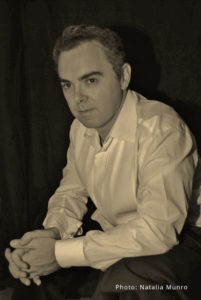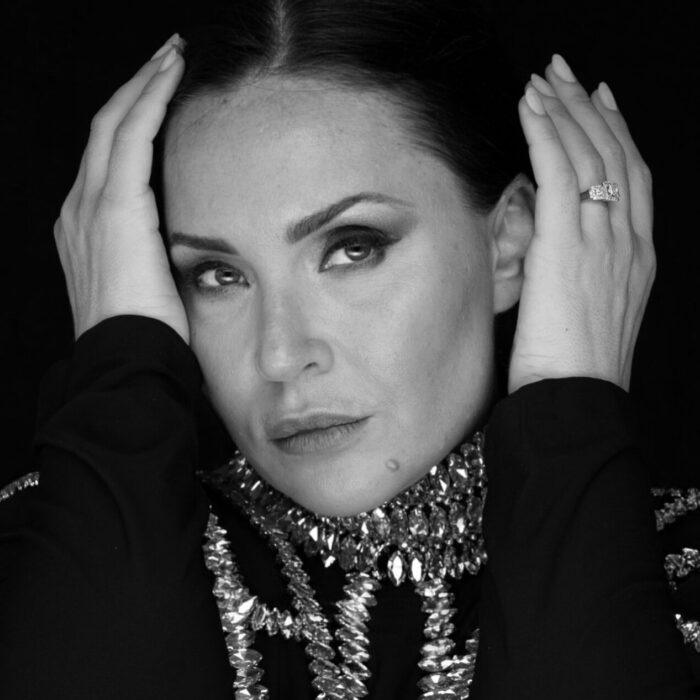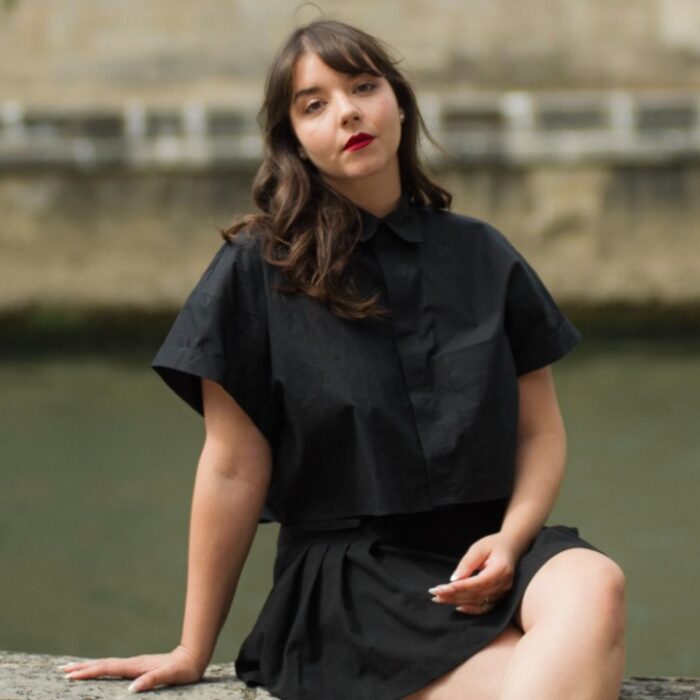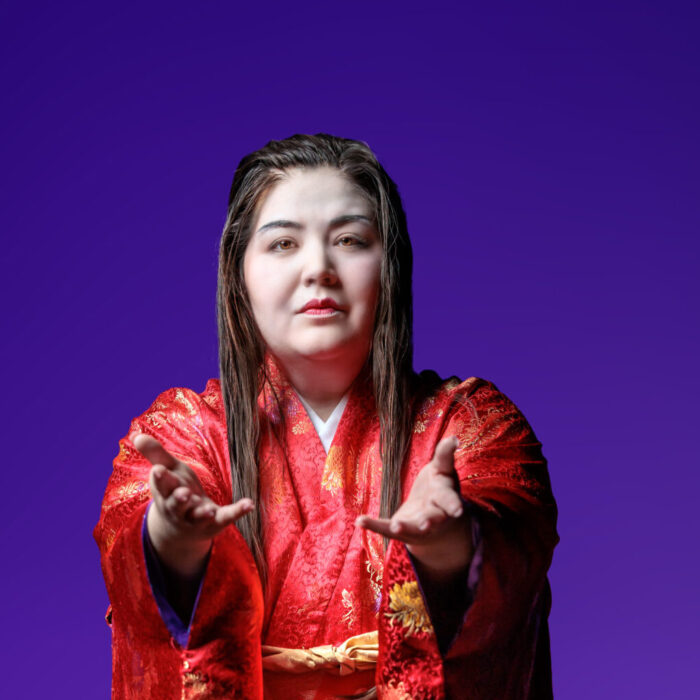
Q & A : Director Antón Armendariz Diaz On His Adaptation of Poulenc’s ‘The Human Voice’
By Chris Ruel(Credit: Natalia Munro)
New York opera audiences will have another opportunity to encounter one of Francis Poulenc’s works after “Dialogues des Carmélites” finished off the Met Opera season to the acclaim of audiences and critics alike. The U.S. debut of the Spanish production of “La voix humaine (“The Human Voice”),” directed by Antón Armendariz Diaz, and starring soprano Ashley Bell and actor Michal Gizinski, runs in New York on June 25 and 27 at Baza Studios. The opera is presented by Divaria Productions as part of New York Opera Fest 2019.
Poulenc’s opera, “La voix humaine,” is based on Jean Cocteau’s monodrama of the same name. The work was a result of the collaborative efforts between Poulenc, Cocteau, and French soprano Denise Duval. Director Armendariz Diaz’s Spanish production of the “The Human Voice,” combines Cocteau’s play with Poulenc’s opera, presenting both simultaneously using an actor, a singer, and three languages—French, English, and the potent language of Poulenc’s music. When the production debuted in Spain in 2018, it proved to be a powerful piece of operatic theater that left audiences stunned.
Armendariz Diaz’s directing experience began with short videos. He studied film direction with Eduardo Gil and interpretation with the Professor of the Institut de Teatre de Barcelona, stage director Jordi Godall. Armendariz Diaz’s passion for music soon led him to form the company Rioja Lirica where he has directed many successful productions including, “L’Elisir D’Amore,” “Don Giovanni,” “Così Fan Tutte,” as well as newer works. OperaWire connected with the director to learn more about his Spanish adaptation of “The Human Voice,” the themes addressed in the work, and the challenges and joys of showcasing such an intriguing work in the Big Apple.
Opera Wire: How did you come to work with Divaria Productions on staging the U.S. premiere of the Spanish production?
OW: What inspires you about “The Human Voice?” What excites you most about this production?
OW: There seems to be greater attention being paid to Poulenc’s operas. What do you think is driving the interest?
OW: Do you consider yourself to be a champion of the composer’s work? If so, why?
OW: The play, “La voix humaine,” was written by Jean Cocteau as a one-act monodrama. How was the work adapted to create the opera?
AAD: Poulenc didn’t write the opera immediately after the premiere of the theatrical work. He waited 14 years, years he believed he needed to have experience in life. The adaptation maintains the emotional intensity of the play, supported by harmonies that leave us with no doubt as to the emotional state of Elle at all times. Poulenc’s piece also highlights the role of the orchestra, which plays the other protagonist, the telephone, and the relationship that both of them have.In producing this particular adaptation, mixing both works and presenting them simultaneously, the main focus was to find the moments where we cut to the place where Elle (the actor or singer) has left off, giving the audience the feeling of being in a permanent flashback. It was also interesting studying the character from different points of view, and I don’t mean male-female, but rather being-not being, living-dying, and studying how a person would behave under such pressure. This adaptation involved investigative work with a very heavy psychological burden as well as listening to many opinions from many different people to avoid histrionics or make the character seem ridiculous, rather than someone real, like any of us.
OW: What is the primary theme you are wishing to explore?
OW: The write-up regarding the opera poses the following question regarding the character(s): “Is he her? Or is she him?” Is this representative of a larger underlying question regarding gender?
AAD: Cocteau had just broken up with his lover shortly before writing the work, and that leads me to think—although I may be wrong—that it is partly biographical. In the 1930s he could not put a man on stage speaking openly about a homosexual relationship in spite of how open Paris was at the time. In part, this was what lead me to use a male actor to play the spoken part of Elle, but there was something even deeper in my reasoning.
In this adaptation, Elle acquires a masculine figure to encompass the human being in the intrinsic meaning that I want to express. In the end, what we see is a person, whether it’s a man or a woman doesn’t matter, nor do I think the work speaks of masculine or feminine genders or of hetero or homosexuality. We see a human being suffering, at times happy, leading his/her life as best he/she knows how to or can, or letting surrounding circumstances lead him/her down a certain path.
At the end of the premiere in Logroño, we had a conversation with the audience, and someone asked why a man had not sung. The answer is simple: the opera was written for a soprano, and it would not be possible for a man to sing it, but if it wasn’t for this, the character is easily interchangeable. But yes, we cannot and should not see a man and a woman, but rather a spirit, a soul, an energy. And for this same reason, we haven’t changed a single line of the original script. We maintain the same references to gender that were in the original.
OW: What is the significance of the mirror in which the two singer/actors live out their parallel lives?
OW: What are the directorial challenges you’ve had to overcome in mounting the production? And, on the flip side, what have you found to be the most rewarding aspects of directing the opera?
AAD: The primary challenge is to make the audience understand the meaning, and to not see the actor and the soprano as independent of one another, but as a whole—a single character who learns from his/her mistakes. This has been my primary objective since the development of the idea began. In the beginning, the rehearsals were done separately, like pieces in a puzzle, where I gave directions to each individual. For the actor playing Elle, the part is difficult, because while the soprano sings the role,the actor has to do many things, such as react to her thoughts. But, then, while he acts the part of Elle, the soprano disappears, since we are transported back into the real world. During the separate rehearsals, many times it was not very clear to the actor why things happened. Of course, everything became clear when we combined the rehearsals; everything worked, and the puzzle was completed.
We all had to struggle and tell ourselves multiple times that we were acting. This is such an intense work that, although we are professionals and treat acting as a game, separating our lives from that of Elle, was difficult. The emotions flowed ceaselessly and on more than one occasion, we had to stop because of our desire to cry. All of us felt it—the actor, Michal Gizinski; the soprano, Ashley Bell; the pianist, Maestro Nicolò Sbuelz, and me. It was a very beautiful process.
The most rewarding thing has been working with this team. To see the team commit themselves to something that I dreamed up eight years ago, and to see that thanks to their work—and also to your [journalists’] work with the attention you are giving to us—I see live in 3D what only a few months ago was just a figment of my imagination. Seeing it in New York is priceless. I can only feel grateful for everything and thank everyone.


